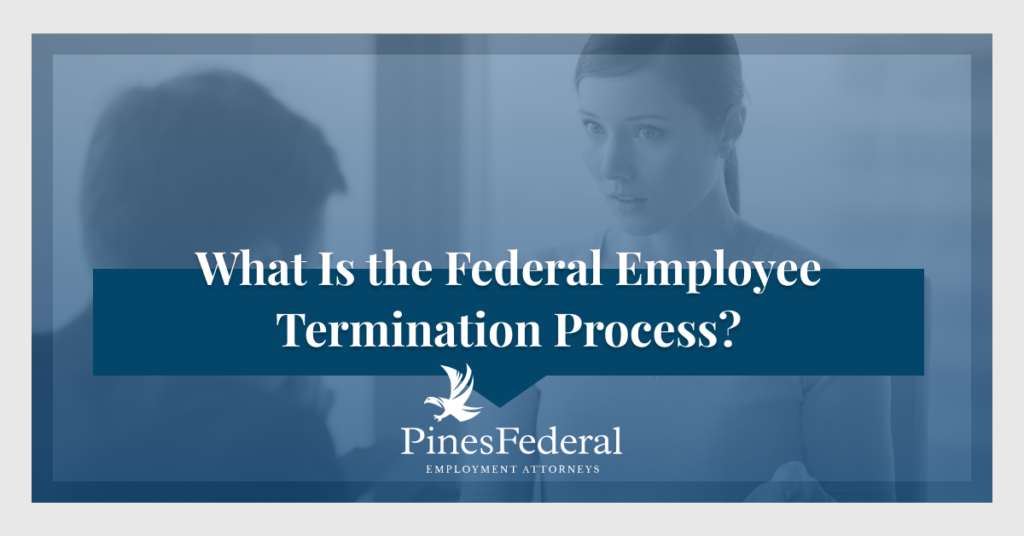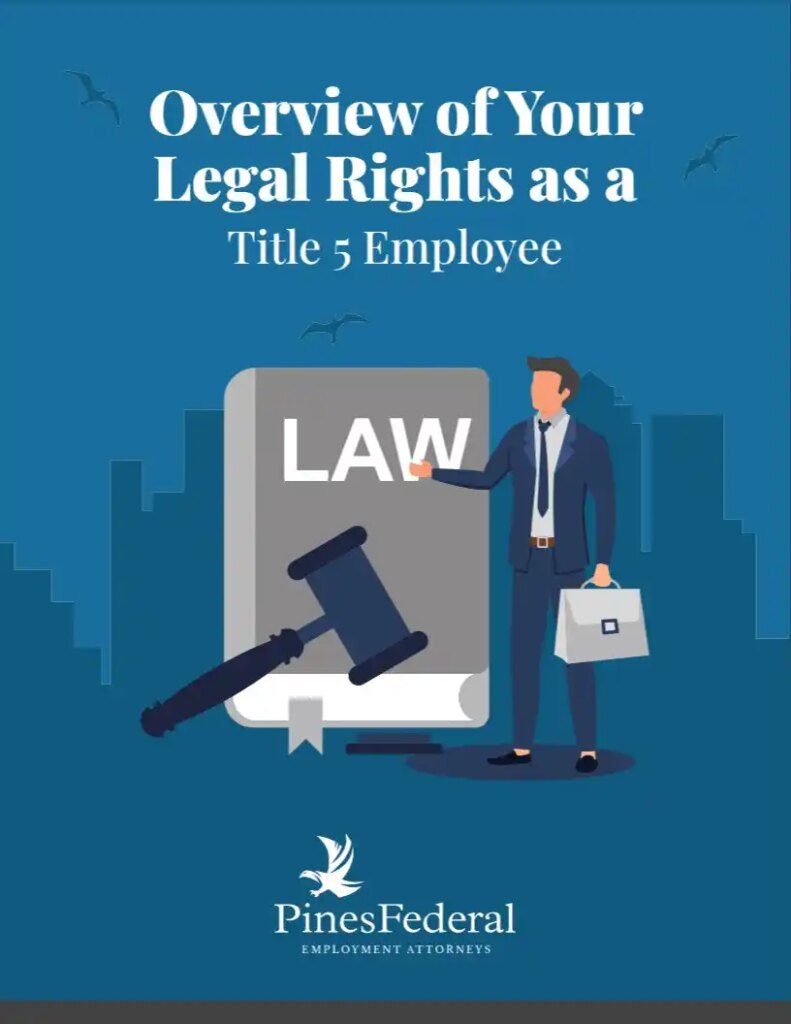
Chief among federal employees’ worst-case scenarios is the prospect of removal from the federal service.
While it’s undoubtedly scary to face removal, there are many ways to uphold your rights and save your federal career.
In this article, we’ll cover the applicable federal employee termination procedures, what to expect, and how you can contest removal.
For advice on your specific situation, reach out to Pines Federal to set up a consultation. Call our experienced MSPB lawyers at (800) 801-0598, or fill out our online contact form today.


“I was issued a proposed removal letter at the VA where I work as a nurse, and I didn’t know what to do. I was confused and disoriented. Pines Federal were ready to defend me to the end. This law firm is the best federal government firm out there. I will be spreading the news to my friends and coworkers…”
What Steps Are There in the Federal Employee Removal Process?
Removing a federal employee is a serious action involving a complex set of procedures designed to ensure fairness and due process.
In fact, the process can be different if you are a Title V employee or Title 38. In this guide we discuss the process for Title 5 which is the most common type of federal employee.
Here’s how the process works.
- Counseling. Before taking any formal action, supervisors will often counsel you on performance or conduct issues. This gives you an opportunity to correct any problems.
- Notice of proposed action. The termination process for federal employees officially begins when the agency provides you with written notice of the proposed action. This notice will specify the reasons for the proposed removal, including references to specific incidents or performance deficiencies.
- Right to respond. After receiving the notice, you typically have a set period to present a defense. Your defense can be in the form of either oral statements, written statements, or both.
- Evaluation by deciding official. An agency supervisor who is not the proposing official will review your response and all related documentation. This official will then decide to uphold, alter, or cancel the proposed removal.
- Notice of decision. If the deciding official opts to move forward with the removal, you’ll receive a final written decision. This notice must include specific reasons for the decision, the effective date of removal, and your appeal rights.
- Appeal period: You can appeal removal decisions, assuming you make that appeal within a certain time period. Depending on the circumstances and the basis for removal, you can appeal to the Merit Systems Protection Board (MSPB), Equal Employment Opportunity Commission (EEOC), or file a union grievance if you are a bargaining unit member.
- Final action. If you forego an appeal, the removal becomes final, and you will be officially separated from federal service.
Keep in mind that you have the right to representation throughout the entire removal process. This representative can be almost anyone, including an attorney, a family member, or a friend.
What Happens If You Get Fired from a Federal Job?
Being removed from federal employment carries heavy consequences.
- First, you can expect to lose access to certain benefits like health insurance and retirement contributions.
- Second, you may be ineligible to apply for unemployment benefits if your removal was related to misconduct.
- Third, removal from the federal job sector will significantly blacken your reputation, significantly limiting your future employment prospects.
- Finally, your ability to be rehired into the federal service may be limited depending on the circumstances of your termination.
Because of these harsh consequences, it’s crucial to understand your rights and seek representation during the removal process.
At the very least, you’ll want to be able to negotiate a more graceful departure from the federal sector, such as a resignation in lieu of removal.
When Is a Removal Illegal?

The short answer is that a removal is illegal if your agency bases it on prohibited discrimination or if it violates your due process rights.
Federal anti-discrimination law prohibits any unfair treatment that relates to several personal characteristics.
The list of protected characteristics includes the following:
- Race,
- National origin,
- Sex,
- Gender and Gender identity,
- Sexual orientation,
- Age (above 40),
- Ethnicity, and
- Religion.
Removal is also illegal if your employer fails to provide due process rights. These rights include at least 30 days advance written notice, a reasonable time to respond orally or in writing, and the right to seek representation.
It’s also mandatory that you receive notice of your right to appeal. If your employer fails to honor any of these rights, a federal administrative judge could overturn the entire removal action.
Facing Removal from Federal Service? We Can Help You Salvage Your Federal Career
No matter whether you’re at the beginning or end of the federal employee removal process, we can help.
When you set up an appointment with Pines Federal, you will receive both a clear assessment of your legal options and outstanding customer service. Our paramount goal is to defend your rights and protect your federal career.
Even if you aren’t sure that you want to hire a lawyer, contact us today. You have little to lose by setting up a brief consultation and learning about your legal choices. To get started, call us at (800) 801-0598 or send us a message online.
[DOWNLOAD] Legal Rights for Title 5 Employees
